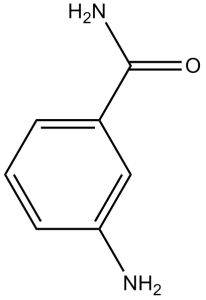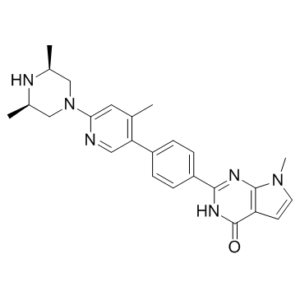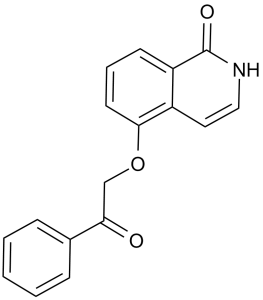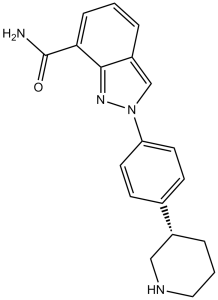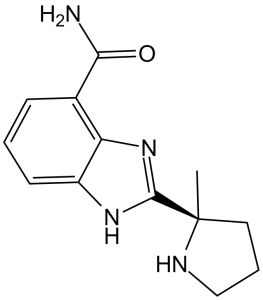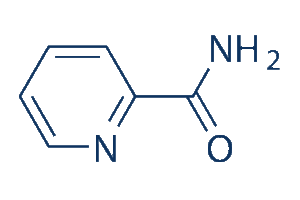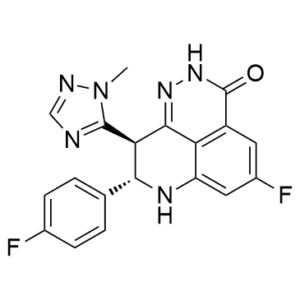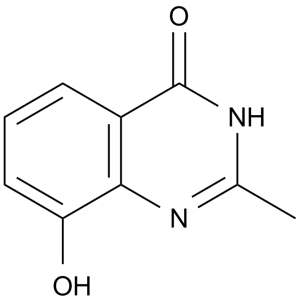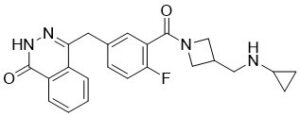PARP-IN-1 (3-Aminobenzamide; 3-ABA; 3-AB) is a novel and potent inhibitor of PARP [ Poly(ADP-ribose)polymerase] with potential anticancer activity.
AZ6102 is a potent and dual inhibitor of tankyrases TNKS1/2 with IC50 values of 3 nM and 1 nM, respectively, it has 100-fold selectivity against other PARP family enzymes and shows 5 nM Wnt pathway inhibition in DLD-1 cells.
UPF 1069 (UPF-1069), an isoquinolinone derivative, is a novel, potent and selective inhibitor of poly-(ADP-ribose) polymerase 2 (PARP-2) with potential neurprotective and anti-ischemic effects in vivo.
Niraparib (formerly known as MK4827; MK-4827; Zejula) is a potent, orally bioavailable and selective inhibitor of PARP1/2 with anticancer activity.
Veliparib (also known as ABT888; ABT-888) is a novel and potent inhibitor of PARP1 and PARP2 [Poly (ADP-Ribose) Polymerase] with potential anticancer activity.
Picolinamide (2-Pyridinecarboxamide, Picolinoylamide, 2-Carbamoylpyridine) is found to be a strong inhibitor of poly (ADP-ribose) synthetase of nuclei from rat pancreatic islet cells.
Talazoparib (formerly BMN-673 and MDV-3800; trade name: Talzenna), is a novel, highly potent and orally bioavailable PARP1/2 [poly(ADP-ribose) polymerase] inhibitor approved for cancer treatment.
Senaparib (IMP-4297; IMP4297) is s a novel potent, orally bioavailable PARP1/2 inhibitor with anticancer activity.
NU1025 is a novel, potent and selective inhibitor of poly(ADP-ribose) polymerase (PARP) inhibitor with potential anticancer activity.
Venadaparib (IDX-1197; IDX1197) is a novel, selective and orally bioactive PARP inhibitor (IC50s = 1 ~2 nM) with anticancer activity.
